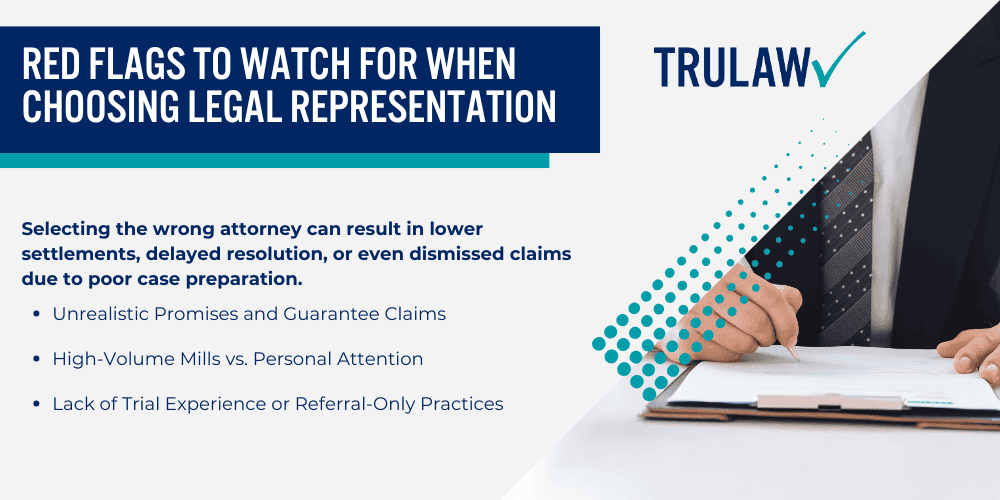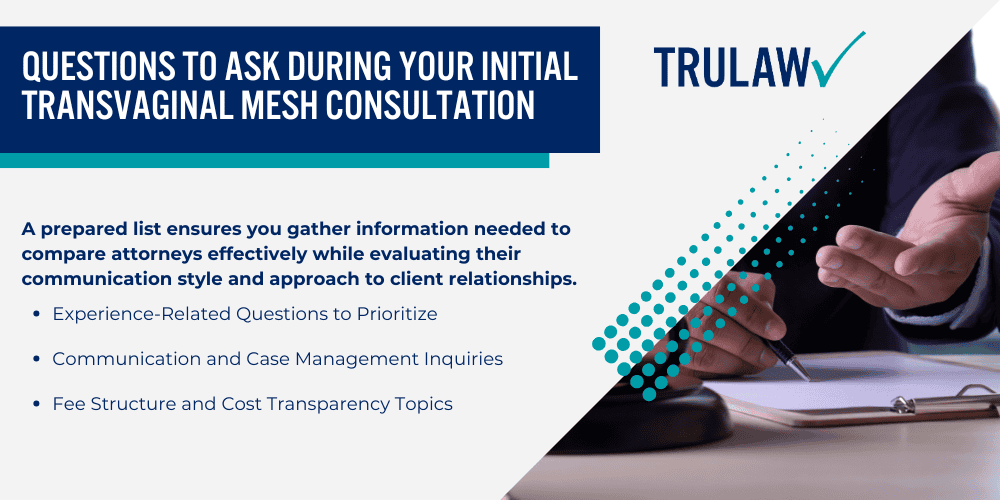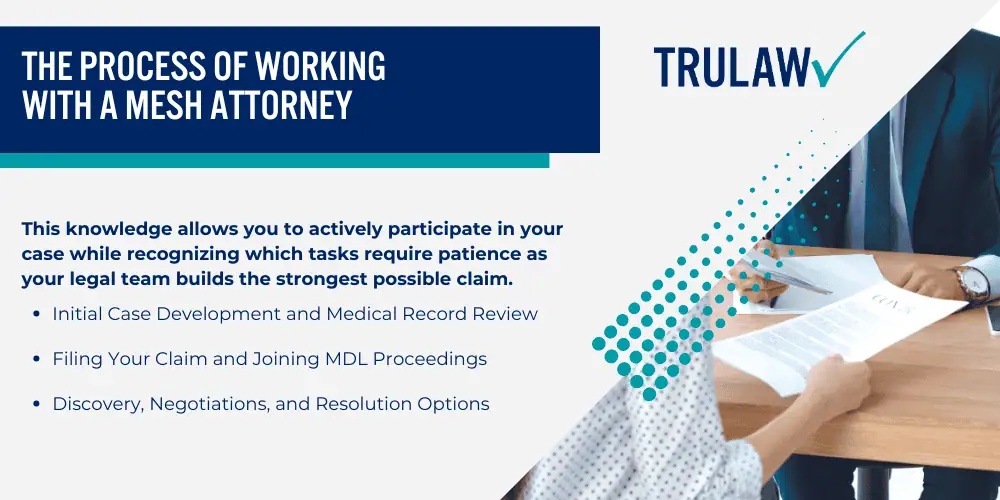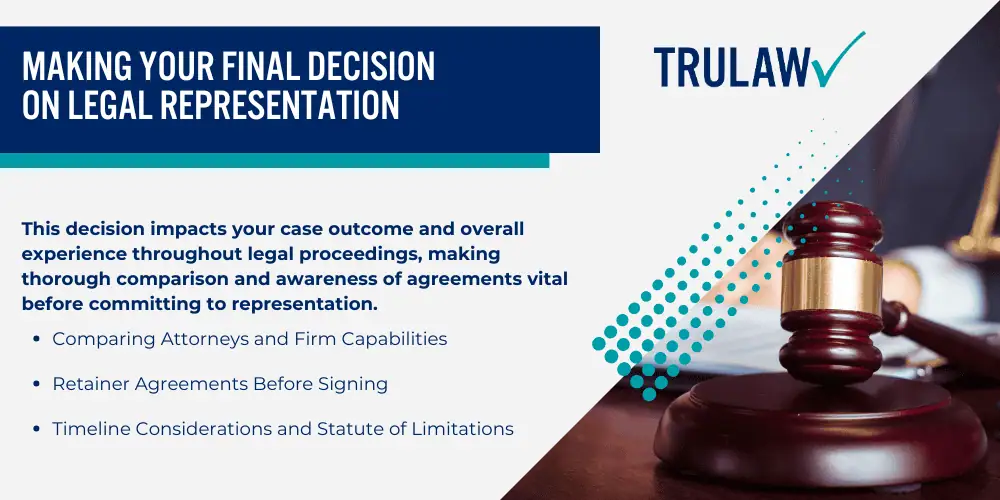Mesh litigation requires specific expertise beyond general personal injury law, as these cases involve detailed medical evidence, FDA regulatory history, and multi-district litigation experience that not all attorneys possess.
When evaluating potential legal representation, you need to assess whether an attorney has the specialized knowledge and resources to handle the unique challenges of transvaginal mesh cases.
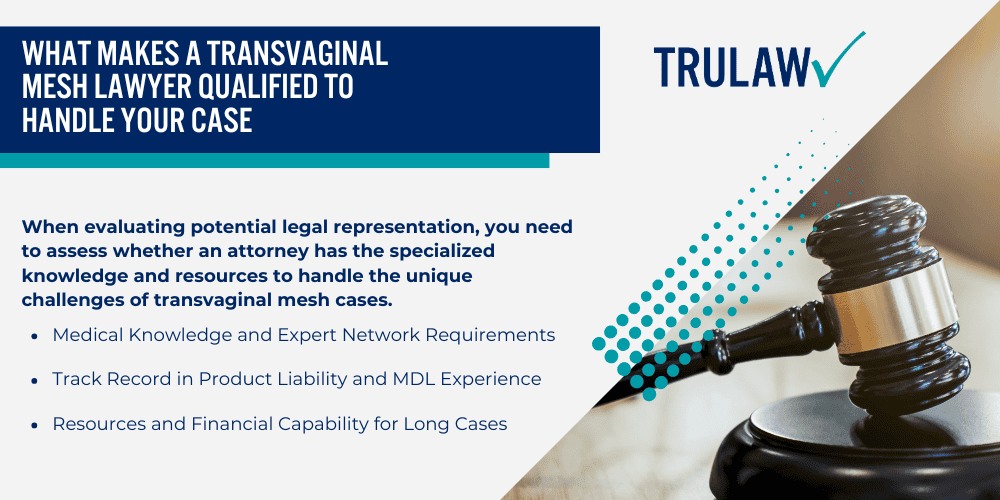
Medical Knowledge and Expert Network Requirements
Attorneys handling mesh cases must grasp detailed medical terminology including pelvic organ prolapse (POP), stress urinary incontinence (SUI), and mesh erosion rates that affect approximately 2% of SUI patients and 4% of POP patients within the first two years.
Experienced lawyers maintain established relationships with urogynecologists and pelvic floor specialists who can review medical records, identify complications, and provide expert testimony about how vaginal mesh implants caused specific injuries.
Your attorney should have access to medical experts who are familiar with the various types of mesh complications:
- Mesh erosion into surrounding vaginal tissue
- Chronic pain and dyspareunia
- Infection and abscess formation
- Organ perforation (affecting bladder, bowel, blood vessels, and other internal organs)
- Mesh contraction and vaginal scarring
- Revision surgery requirements
These relationships allow attorneys to quickly identify whether mesh complications align with known failure patterns documented in FDA safety communications and medical literature.
Track Record in Product Liability and MDL Experience
Multi-District Litigation (MDL) consolidates similar federal cases before one judge for coordinated pretrial proceedings, requiring attorneys to grasp unique procedural rules and case management orders.
The transvaginal mesh MDLs, overseen by Judge Joseph Goodwin in the Southern District of West Virginia starting in 2012, have resulted in over $8 billion in settlements and verdicts, with individual case values typically ranging from $150,000 to $450,000.
Experienced mesh attorneys demonstrate their qualifications through:
- Active participation in leadership committees within MDLs
- Direct involvement in bellwether trials that set settlement values
- Successful resolution of individual cases outside MDL proceedings
- Knowledge of manufacturer-specific defense strategies including those used by Boston Scientific Corp
- Recognition of how different mesh products (Perigee, Apogee, Elevate) present unique liability issues
Firms that actively litigate cases rather than simply collecting and referring them maintain stronger negotiating positions with manufacturers.
With approximately 95% of mesh MDL cases now resolved, attorneys must demonstrate experience handling both consolidated proceedings and individual state court actions where remaining cases proceed.
Resources and Financial Capability for Long Cases
Transvaginal mesh litigation requires substantial financial resources, as cases often involve multiple expert witnesses, extensive medical record review, and protracted discovery processes that can cost hundreds of thousands of dollars before resolution.
Smaller firms lacking these resources may pressure clients into accepting inadequate settlements or fail to properly develop cases, thereby limiting potential compensation.
Well-resourced firms demonstrate their capability through:
- Willingness to advance all case costs without client reimbursement
- Relationships with multiple medical experts across specialties
- Ability to fund extensive discovery and document review
- Trial preparation resources for cases that don’t settle
- Staff dedicated to managing detailed medical records
Contingency fee structures protect injured patients from financial risk, with attorneys typically receiving 33-40% of any recovery only after a successful resolution.
Firms handling mesh cases must have the financial stability to sustain multi-year litigation timelines without compromising case quality or pressuring clients into premature settlements.

